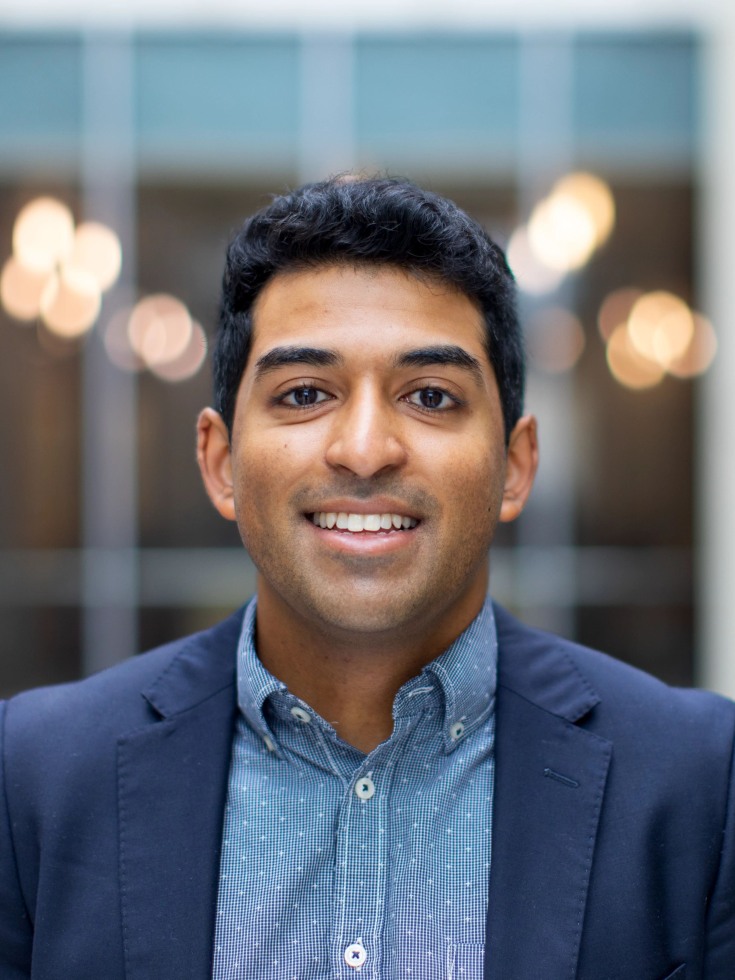PROVIDENCE, R.I. [Brown University] — It all makes sense in hindsight, says Sudheesha Perera of the unique educational path that led him to where he is today — about to graduate from Brown University’s Warren Alpert Medical School with the Class of 2024.
While Perera, the son of Sri Lankan immigrants, always wanted to study medicine, he discovered along the way that he also wanted to learn, try and do many other things, including a full-time job in the financial sector, data science work in Thailand and a master of public health degree. Fortunately, he said, being at student at Brown meant that he was able to engage with his wide-ranging interests and gain invaluable experience.
“Brown provided an absolutely incredible opportunity to explore both within and outside of medicine,” Perera said. “I knew that there was this amazing community and institution at my back every step of the way.”
Perera’s 131 fellow graduates selected him to deliver remarks at the Warren Alpert Medical School ceremony on Sunday, May 26, during Brown’s Commencement and Reunion Weekend. His address is titled “When Do We Become Doctors?”, which is fitting for a graduating medical student whose education timeline has been impacted not only by personal decisions, but also by world events.
As part of the Program in Liberal Medical Education, in which students earn both a Brown bachelor’s degree and an M.D. from Warren Alpert Medical School in eight years of study, Perera developed a passion for mathematics and computer science. Upon graduating from Brown in 2017, he decided that instead of transitioning directly into medical school, he wanted to develop his skill sets in those fields. He moved to New York City and spent nearly two years working as a data engineer at a hedge fund. Although he loved using data to solve problems, this job confirmed for him that his future was in health care.
In 2019, Perera returned to Providence to begin physician’s training at the Warren Alpert Medical School. Less than a year later, the COVID-19 pandemic arrived, and classes shifted temporarily to remote instruction to protect students and faculty.
“Our med school experience was colored by the pandemic and the post-pandemic period,” Perera said. “As medical students, we were managing changes to our curriculum, and as future physicians, we were watching, listening and trying to learn from how health care leaders responded to the evolving situation.”
After vaccines became widely available and universities returned to in-person learning, Perera dove into classes as well as extracurricular activities. He helped to found a Brown elective called Data Science for Doctors, intended to introduce medical students to the fundamentals of biomedical informatics, and joined the American Medical Association Medical Student Section to draft policies that promote equitable and patient-centered use of health information technology.

